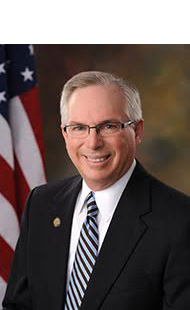
This week, the Kansas Senate and House voted to override Governor Brownback’s veto of a bill designed to generate additional revenues for state government. The bill replaces the two-bracket income tax system adopted in 2012 with a new three-bracket system. It accomplishes several important objectives:
- Once again imposes income tax on LLCs, Sub-S corporations, partnerships, sole proprietorships and farmers. Designed to stimulate economic growth, this “small business incubator” failed to live up to expectations and was widely viewed as inequitable.
- Stops the “march to zero income tax” and restored balance to the traditional three-legged stool of Kansas taxation – income, sales, and property tax
- Restores fiscal stability to the state budget, correcting the persistent structural imbalance between state expenses and revenue.
- Provides for adequate funding for Kansas schools and other core services of state government
In addition to establishing new income tax rates, the bill restores certain deductions and credits:
Medical Expenses – The bill allows a 50 percent deduction for medical expenses for 2018 and the amount would increase to 75 percent in 2019 and 100 percent in 2020. Under Governor Brownback, the medical expense deduction was repealed in 2015.
Child and Dependent Tax Care Credit – The bill would reestablish the credit and it would be set at 12.5 percent of the allowable federal amount for 2018, 18.75 percent for 2019 and 25 percent for 2020 and thereafter. 25 percent is the rate that had been utilized prior to the repeal in 2012.
Mortgage Interest and Property Taxes – The bill would increase itemized deductions for mortgage interest and property taxes paid, currently set at 50 percent of the federal allowable amounts, to 75 percent for 2019 and 100 percent in 2020.
Low-Income Exclusion Threshold – The bill would reduce the low-income exclusion threshold from $12,500 to $5,000 for married filers and from $5,000 to $2,500 for single filers.
Included below are the individual income tax brackets, married filing jointly and revenue projections. You will note the tax rates in the current bill are lower than income tax rates from 1992 – 2012.
Click on table for larger view
Raising taxes on the people of Kansas is never something to celebrate. However, I have consistently claimed, from the day of enactment, that the tax cuts of 2012 were “too much, too soon”. I stated back then that it is a good thing to cut taxes and relieve the tax burden on the people whenever possible. And while I recognize the value that lower taxes bring to the economy, as a legislator I also have a duty to ensure that state government functions properly in delivering essential services to the citizens of the state. I have spoken in past newsletters of our ongoing efforts to rein in expenditures and increase efficiencies. Budgets have been cut wherever feasible, and it was finally time to address the fiscal imbalance. We still face significant challenges, ranging from restoring funding for Kansas highways, stepping up contributions to KPERS, increasing funding to schools, to providing long-overdue pay increases to state employees. This tax bill will set us on the road toward meeting those obligations as we eliminate the fiscal instability.
Here is a statement on the bill from the Kansas Economic Progress Council:
https://ksepc.org/2017/06/kepc-news-release-income-tax-bill-will-ultimately-be-good-for-the-economy/
Cowboy Logic
Beware of bargains… in parachutes, fire extinguishers, brain surgeons and bulls.
Quote of the Week
Sermon in a sentence

